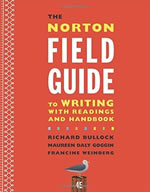Introduction
Welcome
to English 1100: Academic Writing & Reading. Here
is a syllabus for the course;
you are responsible for the information therein, so read it over carefully
and print out a hardcopy.
In this online course, you will be responsible for completing multiple reading and writing assignments within the context of five modules over the span of fifteen weeks. This is the first module. While strict deadlines will be upheld for assignments, you are encouraged to work at your own pace. Be sure to read the modules slowly, carefully, and repeatedly; they contain all core information and are designed to provide you with what you need to know while guiding you from the beginning to the end of the course as smoothly and clearly as possible.
You may
email me with questions via Pilot and [email protected]. I always answer within 24 hours, usually sooner, on the condition that your emails are written in complete sentences and free of mechanical errors. This is a college writing course, so make sure your queries are polished and professional and I will promptly address your concerns.
Please check your WSU email regularly throughout the semester. I often send out information about assignments, campus news, holidays, etc.
This
course is run by way of my
own website in conjunction with WSU's
distance learning program Pilot. The index page will operate as your primary resource for the course. You may access
this page via www.wright.edu/~david.wilson or via Pilot.
All major and minor assignments should be submitted to me via Pilot on their respective due dates and times. Go to the Dropbox and upload your work accordingly. Barring discussions, assignments may be submitted as .doc, .docx, .rtf or .pdf files.
You are responsible for monitoring the upload of each assignment you submit. Assignments submitted after their due dates have elapsed (whether it be one day, ten days, or one minute) will not be accepted. Assignments are due every Friday at 9 a.m. The modules for the course and Pilot provide you with all due dates from the beginning to the end of the course. You are responsible for organizing and managing your time accordingly. Never wait until the last minute to submit work in case of computer glitches, among other issues that might crop up. Always provide yourself with enough time to upload your work.
Grades are based upon a point system tallied throughout the quarter by Pilot. Major assignments are worth 100-200 points and minor assignments are worth 25 points.
I will provide feedback on major writing assignments. There are five: an annotated bibliography, a reflection essay, a literary analysis, a literacy narrative, and an argumentative essay.
I am happy to comment on drafts of major essays prior to their final due date. Once the final due date has elapsed, however, you may not revise or resubmit your work. Be sure to send me drafts AT LEAST 48 HOURS prior to their final due date.
If you do not turn in a major essay, you cannot pass the course.
We
have one paperback text for this course, the fourth edition of The Norton
Field Guide to Literature with Readings and Handbook, which, on this site, will always be referred to as NFG.

In addition, you will also use Purdue OWL, an online writing lab.
Due dates and times for assignments
are clearly posted at the end of each module and on Pilot. Assignments with no due dates and times (namely readings) are not required to be turned in.
FINAL
NOTE: Under no circumstances should parents or guardians of students
contact me with questions or concerns regarding a student's performance, grades,
or the course itself. Such matters are confidential and protected by
university policy. Parents and guardians need to contact the Wright
State University administration with questions or concerns. Students,
however, should feel free to contact me at any time.


![]()